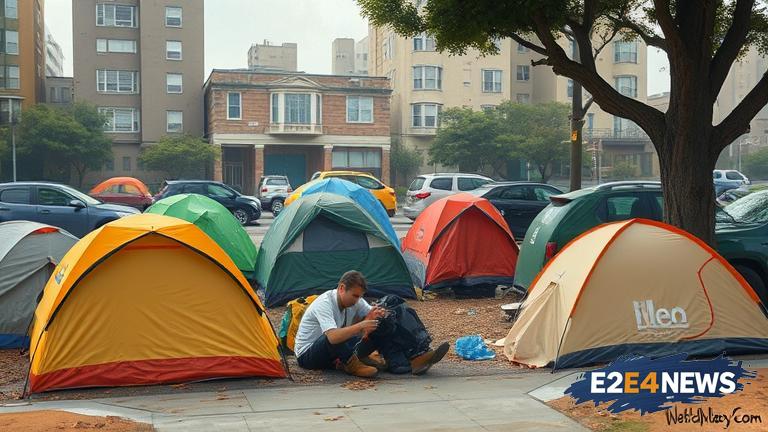San Francisco has begun a concerted effort to clear out homeless encampments across the city, a move that has sparked intense debate among residents, advocates, and local officials. The initiative, which involves the city’s Department of Homelessness and Supportive Housing, aims to provide individuals with support services and housing options. However, critics argue that simply relocating people without addressing the underlying issues of homelessness may not be an effective solution. The city’s approach has been met with skepticism by some, who point out that the root causes of homelessness, such as a lack of affordable housing and mental health services, need to be tackled. Despite these concerns, city officials maintain that their strategy is designed to connect people with the help they need, rather than just displacing them. The sweep of homeless encampments is part of a broader effort by San Francisco to address its homelessness crisis, which has been exacerbated by the COVID-19 pandemic. The city has seen a significant increase in the number of people living on the streets, with many struggling with addiction, mental illness, and poverty. In response, the city has invested in various programs and services, including outreach teams, housing initiatives, and job training programs. However, the effectiveness of these efforts has been questioned by some, who argue that more needs to be done to address the scale and complexity of the problem. The issue of homelessness is a contentious one in San Francisco, with some residents calling for tougher measures to be taken, while others advocate for a more compassionate approach. The city’s mayor has pledged to increase funding for homelessness services and to work with local organizations to provide more housing options. Nevertheless, the challenge of addressing homelessness in San Francisco remains significant, with many individuals and families continuing to struggle to access basic necessities like food, shelter, and healthcare. The city’s efforts to clear homeless encampments have also raised concerns about the potential for displacement and the impact on vulnerable populations, such as women, children, and people with disabilities. As the debate over San Francisco’s approach to homelessness continues, it is clear that there are no easy solutions to this complex and deeply entrenched problem. The city’s strategy will need to be carefully evaluated and refined in order to ensure that it is effective in addressing the needs of all individuals and families affected by homelessness. Furthermore, it is essential that the city’s efforts are guided by a commitment to providing comprehensive support services, including housing, healthcare, and job training, in order to help people achieve stability and independence. Ultimately, addressing homelessness in San Francisco will require a sustained and collective effort from city officials, local organizations, and residents, as well as a willingness to experiment with innovative solutions and to learn from best practices in other cities. The city’s ability to make progress on this issue will depend on its capacity to balance competing priorities, such as public safety, housing affordability, and social services, while also ensuring that the rights and dignity of all individuals are respected. In the coming months and years, it will be crucial to monitor the impact of San Francisco’s efforts to address homelessness and to make adjustments as needed, in order to ensure that the city is moving in the right direction. By working together and adopting a comprehensive and compassionate approach, San Francisco can make meaningful progress in addressing its homelessness crisis and creating a more just and equitable society for all. The city’s commitment to providing support services and housing options is a step in the right direction, but it will be important to continue to evaluate and refine its strategy in order to ensure that it is meeting the needs of all individuals and families affected by homelessness. As the city moves forward, it will be essential to prioritize the development of affordable housing, as well as the expansion of mental health and substance abuse treatment services. Additionally, the city should continue to invest in outreach and engagement efforts, in order to connect people with the services and support they need. By taking a multifaceted approach to addressing homelessness, San Francisco can make a meaningful difference in the lives of its most vulnerable residents and create a brighter future for all.
